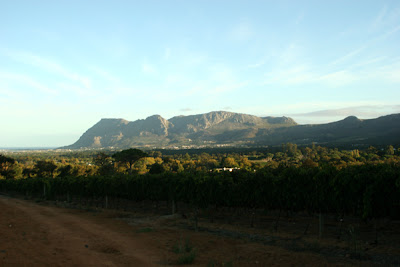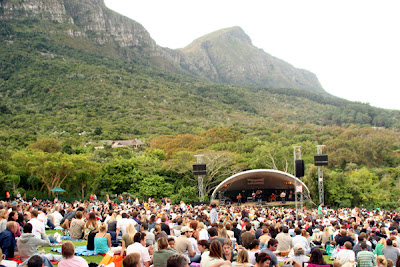I’ve been in this country about six weeks now and it’s time for me to render my initial view on the state of Zambia: it’s fucked. Naturally I’m being melodramatic here, but I’m not far wrong. It is basically pretty fucked. Let’s lay out some of the basics – a country of about 10 or 12 million people (they don’t know exactly how many due to AIDS), the size of several western European nations put together, the fourth largest exporter of copper in the world, close to south Africa and Botswana and other African economic success stories, plenty of arable land…and yet they’ve barely made any strides in terms of development since independence in 1964. Average life expectancy is somewhere around the 35 year mark. GDP per capita has actually DECREASED in the last decade. HIV/AIDS is on the up. And worst of all, things aren’t really going to change in the near future.

So what’s the problem? Why is Zambia in the bottom 15 poorest countries in the world, year after year? That’s a hard one to answer. Personally I think there are a couple of big factors. Most veterans would argue that I’m simplifying the situation, and I can’t deny that. But we have to start somewhere.
Why Zambia is fucked, part 1: The Government
There is plenty wrong with those who govern Zambia, but their economic myopia is the real killer. The copper mines are a telling example – Zambia has enormous reserves of copper, which is one of the reasons Cecil Rhodes (yes, Rhodesia was named after a single white, cigar smoking colonialist) bothered to come here in the first place. Plentiful natural resources should equal a prosperous government. But of course, the British had control over the mines initially, and handed it over to other international companies when Zambia got its independence. These companies pay extraordinarily little export tax – much less than the 3% average in other big exporters like Chile. So the government barely benefits from the rich resources that it has. In fact it often provides free electricity as an incentive for investment, which (given the large consumption of mining companies) may even result in them subsidising multinationals.
Why don’t the government demand more? You might ask that question of the Zambian president, Levy Mwanawasa, who welcomed Hu Jin Tao last month with open arms and the gift of an ‘Economic Development Area’ in the Zambian copperbelt. What this means is that the Chinese can basically set up copper mines, but pay almost no tax or duty for the privilege of exporting it back to Beijing. The Chinese have promised $800m of investment into Zambia, but they are famous for their self sufficiency, and will bring everything they need to mine copper – including the workers themselves – from China. If you don’t believe me, just come to Lusaka and see the brightly uniformed hordes of Chinese that wander through the shopping malls. They are remarkably easy to spot.
Incidentally, the Chinese are appearing all over Africa; from Lilongwe to Khartoum. They are essentially looking for fuel for their own growth: natural resources for construction, and markets they can export goods and services to. It is a well known irony in Zambia that the Chinese export millions of tons of copper from here, turn it into pipes and wiring , and bring it right back to Zambia at a much higher price to use in the local construction industry. An industry which, of course, the Chinese themselves dominate…
I am not, by any means, saying that the Chinese are to blame for Africa’s development stagnancy. Who would refuse such a tempting invite for cheap resources? Admittedly they paved the way by being extremely nice to the Zambian government (constructing a new building for the ministries to be housed in, and erecting a new football stadium for the national team, all for free) but these are relatively small favours in the politics of international trade.
The real problem is the short-termist view of the government, who are seem to prefer a quick buck now, over a fruitful investment for the future. They will do anything to get investment in Zambia, bowing to multinationals and other governments, without really thinking about the long term impact. One might argue that it is characteristic of politicians to work on election cycles, but this is attitude is amplified here, and coupled with corruption (they estimate US$500m disappeared in this country between 1997-2000) it leads to a government that barely looks beyond it’s own fat pot belly.
Why Zambia is fucked, part 2: Aid
While it’s easy to blame the government, there is one potent force that has caused just as much, if not more, damage to this beautiful country: aid. Grants, donations and cash gifts truly have screwed Zambia (and indeed a lot of Sub-Saharan Africa) over. Contrary to the belief of people of many people in the first world, money is not the solution to Africa’s problems. In fact, if it is misused – which it often is – it just makes things worse.
Zambia is hugely dependent on free money. I don’t just mean the government – individual citizens are critically reliant on grants too. So much aid has been put into this country that the Zambians have never had to learn how to survive without it. Every major government initiative is backed with free consultants from aid agencies, with supplementary money to back tax revenue and capacity building funds. NGOs adorn every small district and town in the country, pouring in resources, filling in gaps where the public and private sector are failing. Believe me, there is NO shortage of money is this country. One billion US dollars enter the country from donors every year, and they never expect any back.
Listen to me carefully: despite being a citizen of the west, with your white middle class guilt, you should stop donating money to Africa. Because it isn’t doing any good.
I am not talking about crisis relief: humanitarian disasters like Darfur need your help. NGOs and aid agencies save thousands, if not tens of thousands, of lives every day – from starvation, AIDS, and so on. But if you think that Africa needs increases in annual aid donations in order to build it’s long term future, you’re wrong. ‘Teaching a man to fish’ is really not as easy as you might think. International donors talk of making the country more sustainable, but they simply won’t (or can’t) give it a chance to stand on it’s own two feet. Of course, if they stop holding Zambia’s hand, it will no doubt fall flat on it’s face – and so they are far too scared to do that. But if they continue to support the country in the way they have been, it will never learn to walk.
I may be sounding very right wing here, but if you know me well enough then you’ll realise that I am not suggesting that the West pulls out of Africa. Huge amounts of aid and debt relief are all very well, and may seem like victories to the likes of Bob Geldof, but if the money is not used in the proper way, it is in fact crippling.
Everywhere I go in Lusaka I see white development workers, all working on the same issues, with substantial financial backing – all achieving very little. Donors actively compete to fund individual projects…they fight, for example, over who will provide free computers to the government, and who will fund consultants to the ministry of commerce. There is no co-ordination between donors; in fact there is even rivalry. They are more interested in sexy, high profile projects to write home about than they are in true development of the country as a whole. They rarely have well defined objectives, and even if they do it is even more uncommon for them to demonstrate real, positive impact.
The organisation I am working with – the Association of Microfinance Institutes of Zambia (AMIZ) – is a classic example of unsustainability. Their only revenue is annual fees from their member microfinance institutes, which are a few thousand dollars a year and roughly 10% of their total expenditure as an organisation. So who provides the remaining 90%? International donors, of course. And they have been doing it for years – a few years ago it was SIDA, the Swedish development agency; then DFID, our very own British helping hand. Now it’s HIVOS, a Dutch donor. AMIZ had a funding review meeting with HIVOS last week, who stipulated that their funding would come to an end by late 2008. The onus, they said, is now on AMIZ – stand-alone sustainability is needed. How is AMIZ going to become financially independent, they asked? Of course, AMIZ didn’t really have an answer to this – and they don’t really need one. Because deep down in their hearts, they know that another donor will come along and fund them in (if not before) 2008. In fact, they already have a good idea of who it may be. Naturally, this goes against HIVOS’ noble aims of making AMIZ sustainable. But donors don’t talk to each other (why should they, after all, they are donating their own money, and they should be able to do whatever they want with it, regardless of what is actually needed…). And sadly, this example I have chosen is very symptomatic of the way donors and their beneficiaries work in Zambia.
So what’s my solution? This is not an simple problem. Not at all. It’s very easy for me to criticise development agencies and donors, and it might seem like I’m being overly cynical. But these agencies – the UNDP included – are critical to the developing world. They just need to change the way they do things. Less than two months in, it’s still very early for me to try and figure out a solution, but I have a few suggestions.
Firstly, development needs to become more ruthless. This is the classic view of someone coming from the private sector, but I do believe it strongly. Just because people working in development have ‘good hearts’, it doesn’t mean they can faff around and not work hard to achieve their goals (if they have any). Money that they are using could be used more efficiently elsewhere, to save lives and create jobs. Inefficiency and bureaucracy are, literally, fatal.
Secondly, if development in Africa is REALLY what international donors want, they really need to work together, rather than undermining each other. All donors talking about ‘phasing out’ their funding over time, so that institutions and organisations they are supporting become independent. Yet in practice, few of these entities remain unsubsidised. And thus, there are remarkably few projects that actually support this country without increasing the dependence on that very support.
Thirdly, the giving and receiving of aid is incredibly political. Money is allocated and administered based on a whole host of factors that may or may not be related to the actual needs of the Zambian people. Development agencies, the government, and indeed any other organisation anywhere in the world, are essentially self sustaining, and will do what they need to do to keep their power/status/funding intact. What results is a situation that maximises the longevity of these organisations, and only mildly improves the longevity of Zambia’s citizens. This problem is almost impossible to solve, but it is nevertheless critical.
What I’ve learned while living in Zambia is that there is no shortage of money, or people, to help develop this country. There IS a shortage of good ideas for how to use those resources, and there is a serious lack of efficiency and integrity in administering them, and that’s what’s really causing problems. My suggestions above may sound obvious, but they are incredibly hard to implement. Nevertheless, I believe that international development will change positively, in these ways and others. In fact, as a new joiner to the ranks, I’m pretty much relying on it.



 Cable car up to Table Mountain
Cable car up to Table Mountain

 View from table mountain: Camps Bay
View from table mountain: Camps Bay On top
On top Cape Town really isn't that pretty
Cape Town really isn't that pretty Outdoor concert at Kirstenbosch
Outdoor concert at Kirstenbosch






























